On January 13, 2018, the 2018 New-Year Forum on Macro-economy andFinancial Market was jointly held by the Business School ofCentral Universityof Finance and Economics(CUFE) and China International Futures Co., Ltd. (CIFCO). Themedon macro-economy and financial market, the Forum brought together leadingindustry experts to sort through and review developments of China’smacro-economic policies in 2017 and share their visions and forecasts ofeconomic and financial policies in 2018.
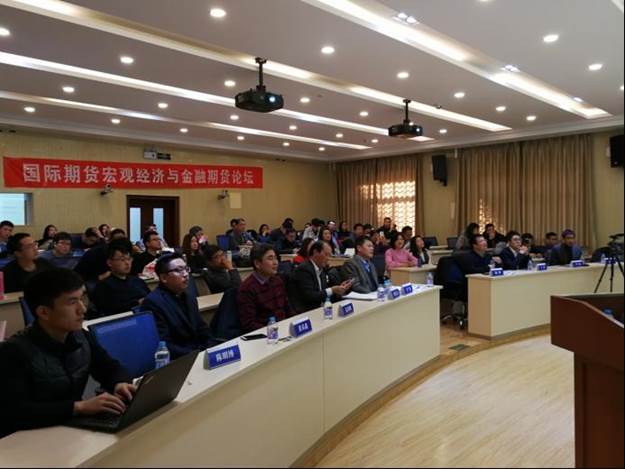
(A scene from theForum)
Zhu Baoliang, Chief Economist of the Economic ForecastingDepartment of State Information Center (SIC), Wang Yun, Quantitative Analyst ofthe R&D Department of China Post Securities, and Luo Yan, Director of ZLResearch Institute, attended the Forum and delivered keynote speeches. Otherattendees included Yu Guangtao, Deputy Dean and Professor of the CUFE BusinessSchool, Kong Weiming and Huang Jixin, lecturers of the CUFE Business School,Chen Hui, Vice President and Chief Macro Strategist of CIFCO, He Chen, Vice Presidentof CIFCO, and Liang Yan, Manager of Options Department of CIFCO. The Forum waschaired first by Mr. Kong Mingwei and then by Mr. Chen Hui.
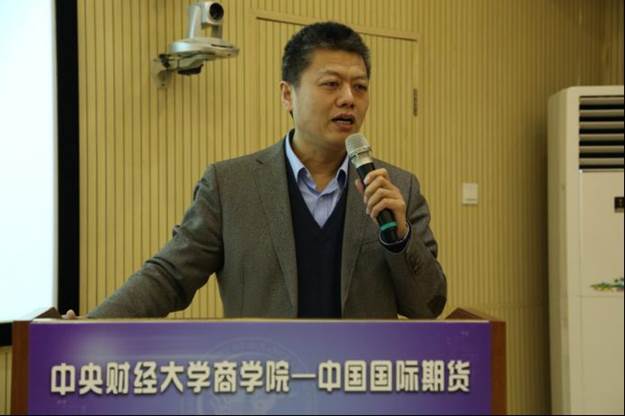
(Yu Guangtao, DeputyDean and Professor of the CUFE Business School addressed the Forum)
The Forum started with a speech delivered by Professor Yu Guangtao.He expressed a warm welcome to all guests present at the Forum on behalf of theCUFE Business School, gave a brief introduction of CUFE and its BusinessSchool, and reviewed the cooperation between the CUFE Business School and CIFCOas well as achievements made therein. He noted that school-business cooperationwas an important part in the running of the CUFE Business School, and that theschool would continue enhancing its in-depth cooperation with CIFCO in 2018, soas to help its faculty and students benefit from academic forums, managementtrainings, and business practices.
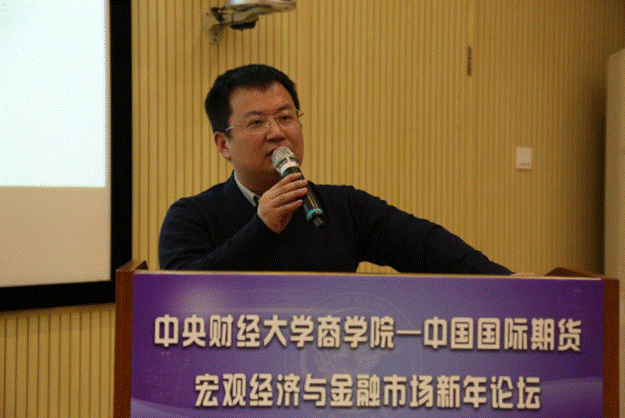
(Chen Hui, VicePresident of CIFCO)
At the Forum, Zhu Baoliang made a speech titledOutlook ofChina’s Economic Situation and Policies in 2018. From the perspectives ofbackgrounds of economic policies introduced in the 19th CPC National Congressreport and at the Central Economic Work Conference as well as theirsignificance, Zhu provided a systematic picture of how China’s macro-economicpolicies developed over the past year and reviewed the control measures takenby both central and local governments.

(Zhu Baoliang, ChiefEconomist of the Economic Forecasting Department of SIC)
In his speech, Zhu elaborated on several topics, includinghigh-quality development, coordinated development of the rural vitalizationstrategy and real estate policies, coordination of the real economy andfintech, and the relationship between environmental protection and economicgrowth. He stated that policies introduced in the 19th CPC National Congressreport and at the Central Economic Work Conference, with rich connotations,clarified major contradictions, goals and roadmap of the current Chinesesociety.
Besides, Zhu also illustrated the background against which thegeneral principle of pursuing progress while ensuring stability was proposed aswell as its requirements. Specifically, he explained with lucidity thenecessity of easing monetary policy, sustainability of strengthened financialregulation for risk prevention, and coordination of complete povertyeradication and social security.
According to Zhu, the supply-side structural reform, proactive andprudent monetary policy, and robust export economy have predominatelycontributed to the good momentum of steady economic growth in China. Measureslike continuing the supply-side structural reform, developing cutting-edge technologies,and formulating evidence-based economic policies are still of great importance.China should practice the vision of innovative, coordinated, green, open andshared development, and relentlessly work toward a modern economic system.
After this, Director Luo Yan, a co-founder of ChinaLHTZ, delivereda speech titledDecoding the Application and Strategy of QuantitativeTrading in Financial Futures. He first gave a brief introduction of theconcept and history of financial futures, and then illustrated practical casesof how to apply simple CTA strategies through TB and their resulting effects. Meanwhile,Luo also introduced high-frequency trading and its parameters, and shared withattendees how to secure high probability of profits.
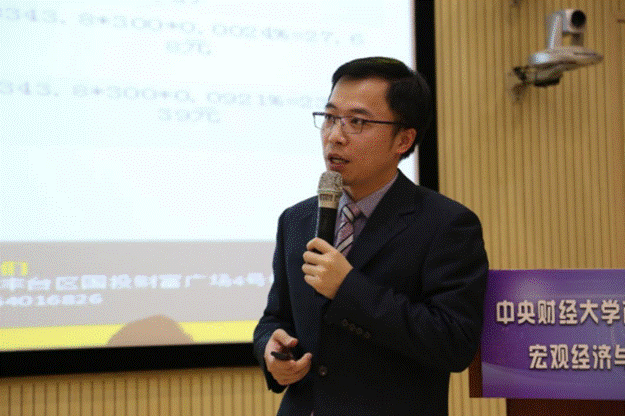
(Luo Yan, a co-founderof ChinaLHTZ and Director of ZL Research Institute)
“In the investment market, risk is the only thing under ourcontrol. No one can accurately predict future market trends. But as long as wecan control risks and survive in the market, profit is just a matter of time,”said Luo Yan.
Wang Yun, an analyst from China Post Securities, gave a keynotespeech titledVolatility Analysis of Stock Index Futuresat the Forum. Hestarted with the widespread application of quantitative trading in the futuresmarket and then analyzed the impact of volatility on the futures market,factors behind volatility, and past trading cases. In addition, Wang alsointerpreted the relationship between VLX and the S&P 500 Index as well asthe market performance of iVIX.
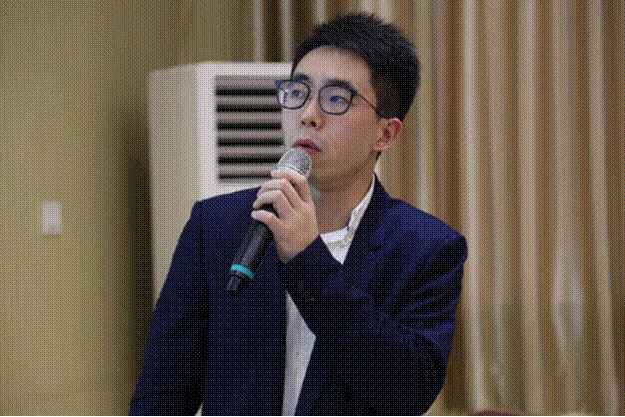
(Wang Yun, QuantitativeAnalyst of the R&D Department of China Post Securities)

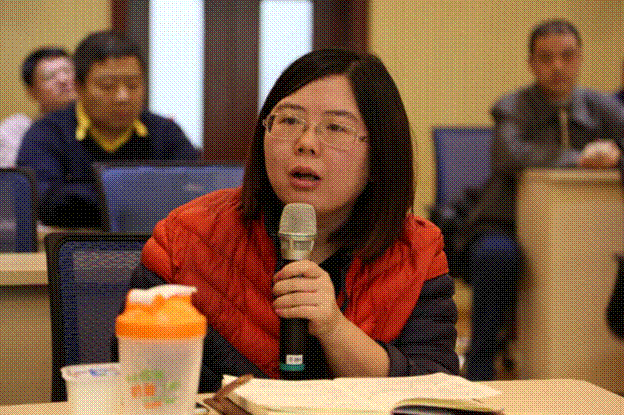
Interaction
Nearing its conclusion, students present at the Forum had a heateddiscussion with the guest speakers on such topics as real estate tax, impactsof easing monetary policy, and expanded investment channels.
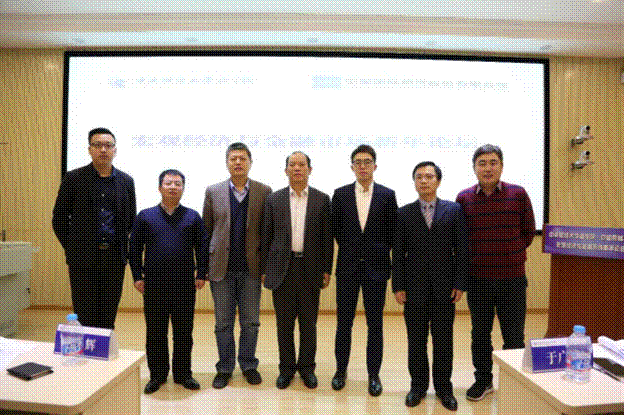
Group photo of guests
With the aim of exploring economic policy trends and offeringinsights into business development opportunities, the CUFE New-Year Forum onMacro-economy and Financial Market came to a successful conclusion.
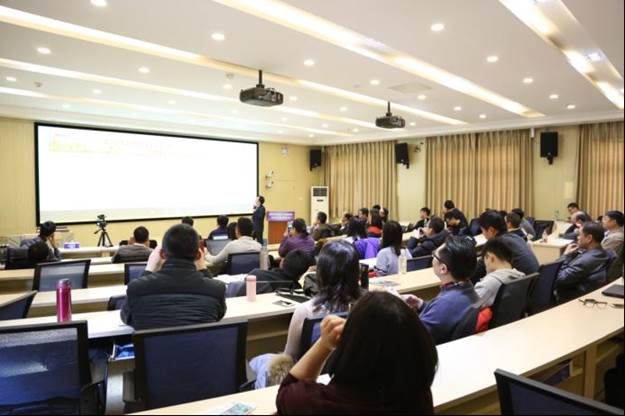
(A scene from theForum)



